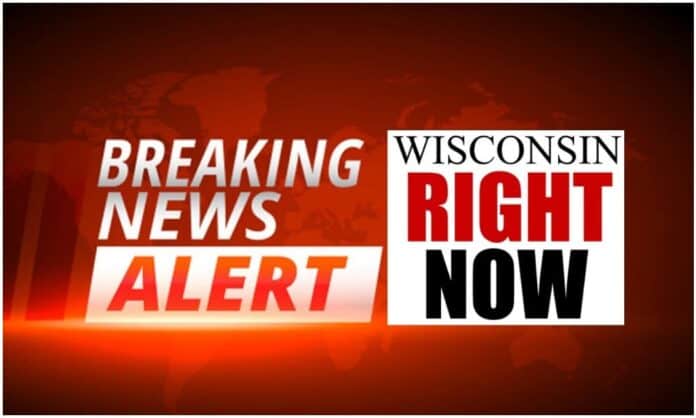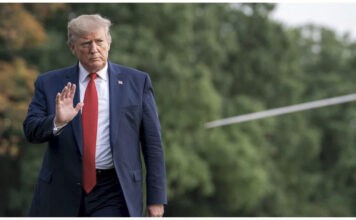The College Free Speech Rankings project, a joint undertaking by FIRE, College Pulse and RealClearEducation, released their report last week. Based on a survey of nearly 20,000 students at 55 colleges, this is the largest-ever examination of how conducive colleges and universities are to free expression. Some of its key findings are:
• Overall 60% of the students note that they self-censor at least once during their college careers for fear of how others will respond.
• A significantly larger number of Conservative students report self-censoring (72%) compared to Liberal students (55%).
• The predominant viewpoint at about 75% for state colleges is Liberal compared with 94% of private colleges and 100% of the Ivies sampled.
• Only 1 in 4 students reports being very comfortable discussing a controversial political topic with their classmates.
• Among the topics that students deem the most difficult to discuss are abortion, race, the Israel-Palestine conflict, gun control and transgender issues.
The above trends are hardly surprising. Yet the way the data has been collected and sliced for analysis offers some novel insights. Colleges are ranked and given an overall score between zero and 100 with higher scores indicating better campus climates for free speech.
The overall score is a composite of five sub-components: openness of the student body to discussing difficult topics, tolerance for allowing controversial speakers on campus, administrative support for free speech, feeling the need to self-censor, and FIRE’s Speech Code Rating. In addition to the overall rankings, each college is given two additional scores: one for Liberal students and another for Conservative students – a higher score here indicates that students of that political persuasion report a better climate for free speech and expression.
This project clearly showcases that while national level data can present certain general impressions of campus free-speech climate, there is immense value in grounding our analysis in campus-specific factors to understand how students read the free speech environment of their schools.
Comparing Liberal and Conservative rankings of each institution in relation to its overall score uncovers interesting and unexpected findings. For instance, Brown University, which has a fairly high overall ranking (9th), ranks 6th for Liberals and 35th for Conservatives. This yawning gap may be a function of the majority of Brown’s student population identifying as Liberal (82%) and only a small minority as Conservative (7%). The self-censorship data for Brown reflects this with 53% of Liberals reporting not expressing their views openly versus 82% of Conservatives on campus. Brigham Young University, the only predominantly Conservative institution in the sample, is ranked highly by Conservatives in 4th place but the lowest by Liberals at number 55. At BYU, the proportion of Liberals self-censoring outweighs the Conservatives by 85% to 49%. A student at BYU reported, “I’m pretty liberal in most of my views. BYU is very religious and conservative. So for the most part I do not feel comfortable discussing any of my views on things like abortion, LGBTQ+ rights, and immigration on campus for fear of hate and backlash.” Small wonder when the price for sharing one’s views is perceived as being so high.
Even when Conservatives give a predominantly liberal institution an overall high score, they find themselves self-censoring. Take the University of Chicago that came out on top even with the disappointing overall score of 64 out of 100. It was ranked highly by both Liberals (1st) and Conservatives (3rd). Overall less than half of the students report self-censoring (44%). But when broken down by political ideology 82% of Conservatives report holding back their views compared to 53% of Moderates and 40% of Liberals. “Afraid to disagree with certain liberal talking points,” one student at Chicago said, “because even if I do not agree with the conservative side either I feel like I will be rejected for not being ‘woke’ enough.”
Having the Liberal and Conservatives scores is further illuminating given how strongly students’ own political ideologies (in relation to the dominant ideology on campus) factor into their sense of their institution’s free-speech-friendliness. Colleges with more ideologically homogeneous student bodies may have a high overall score by mere dint of having fewer dissenting voices on campus — it would be folly in this case to interpret the overall high score as indicative of both Conservative and Liberal students experiencing the campus climate as equally conducive to free expression.
The report concludes that our institutions of higher education “have a long way to go to improve their campus climates for free expression.” This finding mirrors what Heterodox Academy’s member survey (developed in collaboration with the external evaluation team at Cobblestone Applied Research & Evaluation as part of a John Templeton Foundation-funded grant evaluation) conducted earlier this year revealed about how hemmed in academics feel when voicing their views on controversial issues. Of the 445 faculty sampled, more than half checked the boxes for very or extremely concerned that their career would suffer if they expressed their opinion on a controversial subject in the presence of other colleagues. Nearly 6 in 10 were very or extremely concerned that their reputation would be tarnished. And more than one in five were very concerned about formal sanctions for sharing their views.
The Heterodox Academy member survey and the College Free Speech Rankings suggest that the predominant viewpoint on most campuses is Liberal among both professors and students. Why does this matter? The quality of the educational experience for all students is diminished whenever anyone self-censors. Regardless of whether the discourse on a campus is dominated by Liberals or Conservatives, as long as students feel that there are topics that are off limits, or questions that cannot be asked, their ability to understand and think critically is bound to suffer. Indeed, as the data show, the issues that top the list of difficult-to-discuss topics include, abortion, race, gun control, the Middle East, and transgender issues. If students fall silent when it comes to these kinds of topics, colleges and universities are doing a particularly poor job of empowering students to contend with some of the most pressing social and political issues of our times. The need to actively foster open inquiry in our institutions of higher learning is one that requires our urgent attention.
By Amna Khalid
Go to Source
Reposted with permission

















